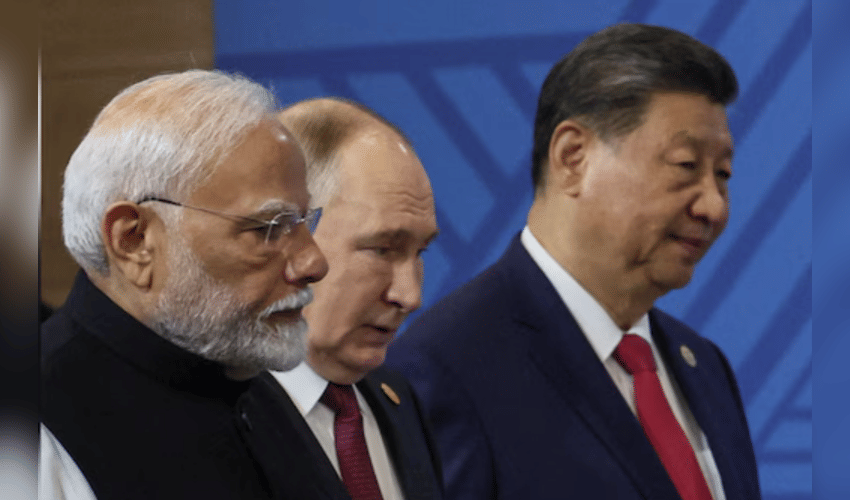Asia In News
Xi Jinping to Host Modi and Putin at SCO Summit Amid Shifting Global Alliances and US Trade Tensions

In a pivotal moment on the global diplomatic stage, China’s President Xi Jinping is set to host Indian Prime Minister Narendra Modi and Russian President Vladimir Putin at the forthcoming Shanghai Cooperation Organization (SCO) summit. This high-profile gathering, taking place amid escalating geopolitical tensions, highlights the complex interplay of regional cooperation, strategic recalibration, and economic diplomacy in Asia.
A New Chapter in Sino-Indian-Russian Relations: For India and China, the summit represents a significant step toward thawing a frosty relationship marked by years of border disputes and military standoffs, including a deadly clash in the Himalayas five years ago. Modi's visit to China for this summit is his first since 2018, signaling cautious but meaningful efforts to stabilize ties. Both countries have engaged in several diplomatic efforts recently, including restoring direct flights and easing trade tensions on critical goods, aiming to manage their differences pragmatically without ignoring structural challenges.
Meanwhile, Russia's presence underlines the continuing strategic partnership between Moscow and Beijing, which together with India, forms a formidable axis seeking to balance global power equations shaped largely by Western influence, particularly that of the United States.
The US Factor: Trade Pressures and Strategic Autonomy: Adding complexity to the summit's backdrop is the backdrop of US tariffs on India, with substantial levies threatening to impact trade relations. These punitive tariffs, introduced as part of wider "America First" policies, have compelled New Delhi to reassess its international partnerships and underscore its pursuit of strategic autonomy—a principle embodied in its willingness to engage robustly with both China and Russia despite existing frictions.
The summit also serves as a tacit rebuttal to unilateral trade pressures, signaling that India remains a sovereign actor navigating multiple alliances without being boxed in by any single power. This stance is critical as India balances its participation in the SCO alongside its commitments in other multilateral frameworks like the Quad, which is often viewed as a counterweight to China’s expanding influence in the Indo-Pacific.
Tackling Regional Security Issues: While economic and diplomatic overtures dominate the scene, security matters, especially cross-border terrorism, will be a key focus. India has made it clear that it will press for a firm condemnation of terrorism during the summit, maintaining that dialogue must address real threats rather than gloss over contentious issues. With Pakistan also represented at the meeting, these discussions are expected to be particularly delicate, reinforcing India's resolve to keep regional security a priority.
The Bigger Picture: Asia’s Rising Momentum- The SCO summit, touted as the largest since its inception, is emerging as a stage where Asian powers articulate a vision for a “Shared Destiny” and a multipolar world order, diverging from Western-led global paradigms. Through this forum, leaders seek not just to manage conflicts but to find common ground for economic cooperation and strategic dialogue.
For India, Modi's participation affirms a nuanced foreign policy focused on autonomy, economic resilience, and regional stability amid the uncertainty of the current geopolitical landscape. As the world watches closely, this summit could mark a subtle yet significant turning point in Asian diplomacy, with ripples felt across global power dynamics.



